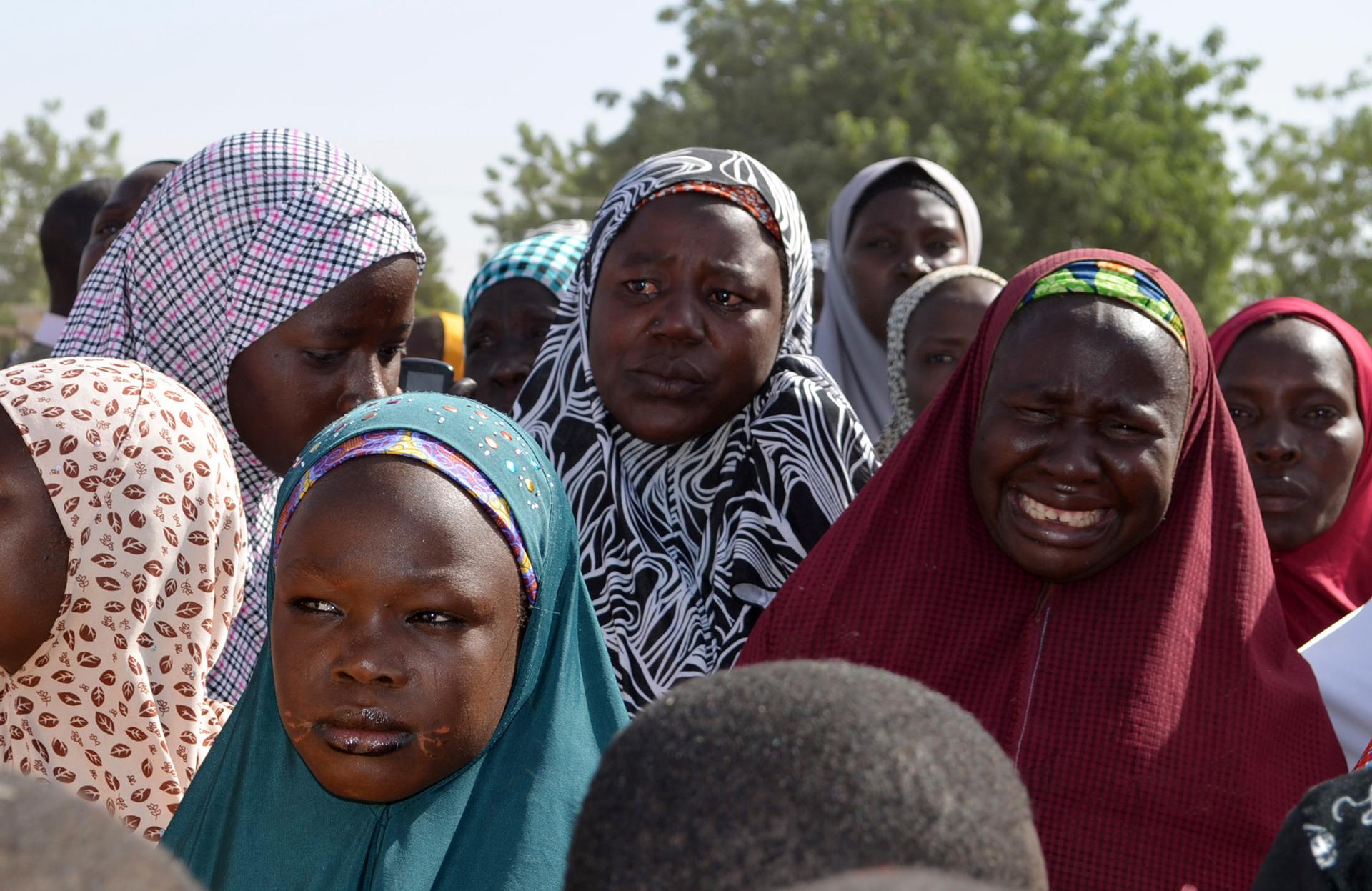A father pleads for the return of his kidnapped daughter in Nigeria
Parents of the Nigerian girls abducted by Islamist militants from the village of Chibok grieve for their daughters
The situation in Nigeria, with more than 200 missing girls, enters its second month this week.
The hashtags, #BringBackOurGirls and others like it, have been helpful in making the kidnapping drama in northern Nigeria a global cause. But nothing's made the drama in Nigeria more real for me than talking today to the father of one of those abducted girls.
Yabuku Nkeki's 19 year-old daughter, Saroti, was in the group of nearly 300 school girls kidnapped by Boko Haram in April. "She's a loveable daughter. She's so friendly to everybody. She's also active in volleyball. It's something that makes me cry, everytime," he says.
Nkeki said he's seen a video released by Boko Haram on Monday — supposedly showing about half of the missing girls, but he wasn't able to see his daughter in the crowd.
The events leading up to the kidnappings are sad, if not unsurprising. Nkeki said security in his city, Chibok, was almost nonexistent, despite the government declaring a state of emergency last year.
"If the Nigerian government can do something … bring more security in Chibok area. Imagine! Only 15 army controlling Chibok. We are always in fear," he says.
Imagine always living in fear — on top of having had your daughter abducted. I also spoke today with Malam Kali, a math and physics teacher at Government Secondary School-Chibok, the school from where the girls were kidnapped.
He said he knows all of the girls well. He said a student who was not taken helped him identify one of the girls in the video — the one who was doing most of the talking.
Her name is Abdou. Kali said Abdou was a Christian who was apparently forced to convert to Islam. Abubakar Shekau, the leader of Boko Haram, said in the video released that all the kidnapped girls who were not Islamic had converted.
"We are traumatized," said Kali. "Every day we hear the news. And every day the news is still, no sign of seeing them. We need your help!"
The situation in Nigeria, with more than 200 missing girls, enters its second month this week.
The hashtags, #BringBackOurGirls and others like it, have been helpful in making the kidnapping drama in northern Nigeria a global cause. But nothing's made the drama in Nigeria more real for me than talking today to the father of one of those abducted girls.
Yabuku Nkeki's 19 year-old daughter, Saroti, was in the group of nearly 300 school girls kidnapped by Boko Haram in April. "She's a loveable daughter. She's so friendly to everybody. She's also active in volleyball. It's something that makes me cry, everytime," he says.
Nkeki said he's seen a video released by Boko Haram on Monday — supposedly showing about half of the missing girls, but he wasn't able to see his daughter in the crowd.
The events leading up to the kidnappings are sad, if not unsurprising. Nkeki said security in his city, Chibok, was almost nonexistent, despite the government declaring a state of emergency last year.
"If the Nigerian government can do something … bring more security in Chibok area. Imagine! Only 15 army controlling Chibok. We are always in fear," he says.
Imagine always living in fear — on top of having had your daughter abducted. I also spoke today with Malam Kali, a math and physics teacher at Government Secondary School-Chibok, the school from where the girls were kidnapped.
He said he knows all of the girls well. He said a student who was not taken helped him identify one of the girls in the video — the one who was doing most of the talking.
Her name is Abdou. Kali said Abdou was a Christian who was apparently forced to convert to Islam. Abubakar Shekau, the leader of Boko Haram, said in the video released that all the kidnapped girls who were not Islamic had converted.
"We are traumatized," said Kali. "Every day we hear the news. And every day the news is still, no sign of seeing them. We need your help!"
Our coverage reaches millions each week, but only a small fraction of listeners contribute to sustain our program. We still need 224 more people to donate $100 or $10/monthly to unlock our $67,000 match. Will you help us get there today?
